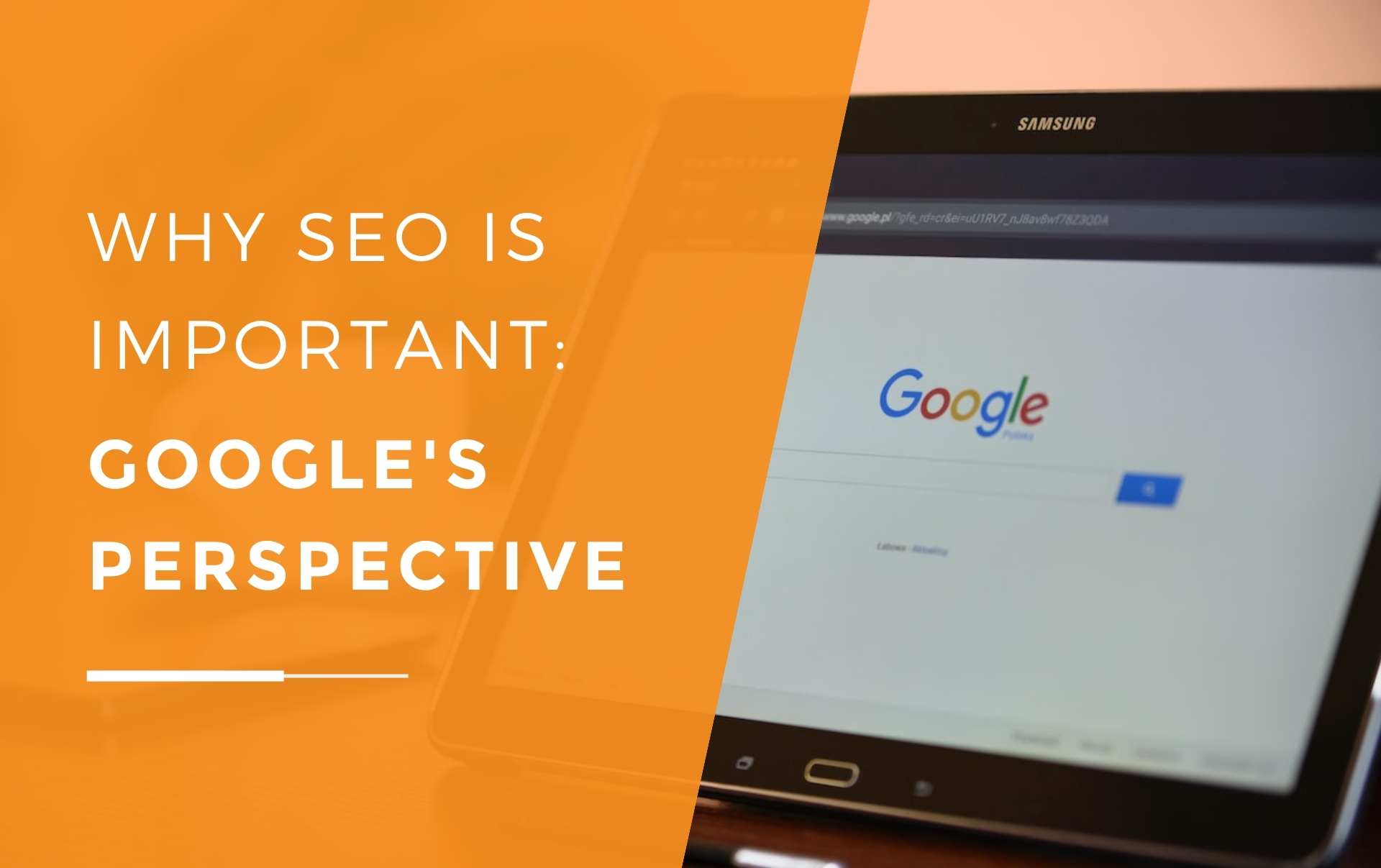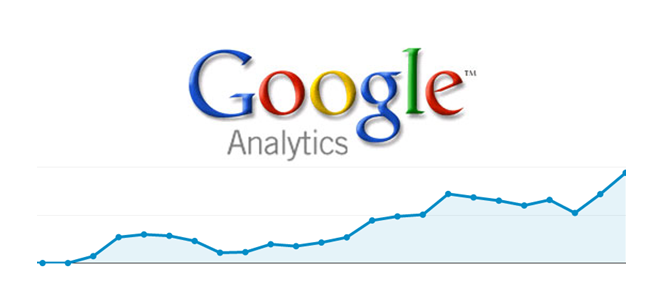5 Ways To Adapt Your Website For Google Rankings Since Penguin & Panda
by Will Williamson on 05-Mar-2014 12:14:00

Has your website been hit with a Google penalty after the recent algorithm updates? Many business owners who have invested in SEO have lost thousands of customers due to being penalised by Google. As Google evolves and their algorithm changes, the way we do SEO has to change and you have to adapt your website accordingly in order to sustain your rankings and traffic. In this article I will give a brief explanation of what each of the main updates focus on and target. I will then go on to talk about actions you can take to adapt your website for Google rankings and to ensure you have a website that Google likes and won’t penalise in the future.
The Main Algorithm Updates
The Panda Update
This Google algorithm update was first released in February 2011. It targeted sites that had little and low quality content on them to lower their rankings and boost the higher quality sites in the SERPS. The Panda update has meant that all Webmaster's who intend to rank well need to focus on producing quality content throughout the site that is useful and informative to users. Panda has updated numerous times since it was first released to further improve the relevancy to Google’s search results.
The Penguin Update
This update to the Google algorithm was first announced on April 24, 2012. The update typically targeted websites that clearly violated Google’s Webmaster Guidelines by using black-hat SEO tactics. The sites that were hit bad, generally had a lot of low quality links pointing to them from blog networks, spam comments, bought links and more. Websites that go against this Google update by building low quality links will surely get hit and penalised by Google – resulting in a loss of rankings, traffic, business and eventually money.
The Hummingbird Update
Hummingbird is the latest search algorithm update to be implemented by Google. They released it in August 2013 and updated it towards the end of September the same year in order to celebrate their 15th birthday. The update focuses on being more interactive. It will take a search query using long-tailed keywords and try to figure out the context of the question being asked. It will then attempt to deliver the most relevant and direct answer to that question.
Actions to Take to Adapt your Website
So now you know what the main Google algorithm updates are about and the type of websites they target, you can take a number of actions to help adapt your website.
1) Have Excellent Content
The first action you should take to ensure your website is Google friendly and adapted for Google rankings is to make sure you have quality and valuable content on your website. The more content you have on a page, the better it is going to be, as long as the quality of the content isn’t sacrificed. After the Panda update we know that Google loves sites that have a lot of content on them that is informative and useful to users. You can improve the content on your site by ensuring all your pages are specific to what the user is looking for. The more relevant the information is on the page, the more useful it is going to be for them and the more Google is going to like your website.
2) Make Sure Your Site is Regularly Updated
Another really important step you should take to ensure your website is adapted to the Google updates is to make sure you have a fresh stream of content being added regularly. Google loves this and ranks sites higher if they are updated regularly with fresh, unique and relevant content. One of the best ways to do this is to have an integrated on-site blog and post weekly articles, or to have a news page that you keep updated with news. Find out more about updating your website here - https://www.jdrgroup.co.uk/blog/bid/352686/how-often-should-you-update-your-website
3) Great on-site optimisation
Great on-site optimisation has always been important but is now even more crucial since the 3 big algorithm updates. You need to ensure your title tag contains your main keyword but isn't over stuffed. Secondly, your meta description should read well, contain keywords if possible, have a good call to action and make the searcher want to click through to your website. Other crucial on-site optimisation factors that you need to be aware of are image alt tags, H1 and other heading tags, good internal linking structure, a site map, privacy policy and more. If you don't get your on-site SEO right from the beginning then your website will never rank as well as it could. Here are some mistakes to avoid when optimising your website - https://www.jdrgroup.co.uk/blog/6-seo-mistakes-small-businesses-make
4) A Good Social Media Presence
Google is starting to consider a websites authority in Social Media more than ever. The more social signals a website has pointing to it, the more authority and trust Google gives it. Make sure you keep your website adapted by having a Facebook, Twitter, Google + and YouTube for your business and having them linked from your website. You also need to make it easy for people to share your content and like you on Facebook, +1 you on Google + or follow you on Twitter and YouTube. View some great Social Media tips here - https://www.jdrgroup.co.uk/blog/6-social-media-marketing-lessons-from-big-brands
5) Natural back link profile
Since the Penguin update, having a natural backlink profile is even more important than ever. You have to be extremely careful about the types of links you build. Buying hundreds of low quality links or adding posts to blog networks etc. just doesn't work anymore. The best links you can possibly get are those that are natural, i.e. people sharing your content and pointing back to your site. The more relevant to your niche these websites are or the more authority they have with Google and the more powerful the links will become.
In conclusion, it is extremely important that you take all of these action steps into consideration to make sure that your website is adapted for Panda, Penguin and Hummingbird, as well as future algorithm updates that are sure to come.
- Inbound Marketing (SEO, PPC, Social Media, Video) (829)
- Strategy (368)
- Sales & CRM (195)
- Marketing Automation & Email Marketing (191)
- Business Growth (167)
- Website Design (161)
- Hubspot (138)
- Lead Generation (117)
- Google Adwords (99)
- Content Marketing (94)
- Conversion (53)
- Case Studies (47)
- News (47)
- Ecommerce (39)
- Webinars (35)
- SEO (26)
- AI (20)
- Events (19)
- LinkedIn Advertising (17)
- Video (17)
- Video Selling (15)
- Software training (13)
- Niche business marketing (11)
- The Digital Prosperity Podcast (10)
- Facebook Advertising (6)
- HubSpot Case Studies (5)
- January 2026 (7)
- December 2025 (15)
- November 2025 (6)
- October 2025 (17)
- September 2025 (16)
- August 2025 (14)
- July 2025 (14)
- June 2025 (5)
- May 2025 (19)
- April 2025 (15)
- March 2025 (13)
- February 2025 (13)
- January 2025 (8)
- December 2024 (2)
- November 2024 (4)
- October 2024 (21)
- September 2024 (4)
- August 2024 (8)
- July 2024 (14)
- June 2024 (16)
- May 2024 (25)
- April 2024 (15)
- March 2024 (18)
- February 2024 (5)
- January 2024 (10)
- December 2023 (6)
- November 2023 (10)
- October 2023 (13)
- September 2023 (12)
- August 2023 (14)
- July 2023 (13)
- June 2023 (14)
- May 2023 (15)
- April 2023 (13)
- March 2023 (14)
- February 2023 (13)
- January 2023 (15)
- December 2022 (13)
- November 2022 (6)
- October 2022 (8)
- September 2022 (22)
- August 2022 (15)
- July 2022 (13)
- June 2022 (16)
- May 2022 (14)
- April 2022 (16)
- March 2022 (17)
- February 2022 (11)
- January 2022 (8)
- December 2021 (6)
- November 2021 (7)
- October 2021 (11)
- September 2021 (10)
- August 2021 (7)
- July 2021 (7)
- June 2021 (4)
- May 2021 (4)
- April 2021 (1)
- March 2021 (3)
- February 2021 (5)
- January 2021 (4)
- December 2020 (7)
- November 2020 (6)
- October 2020 (5)
- September 2020 (9)
- August 2020 (18)
- July 2020 (17)
- June 2020 (17)
- May 2020 (10)
- April 2020 (21)
- March 2020 (24)
- February 2020 (21)
- January 2020 (12)
- December 2019 (23)
- November 2019 (12)
- October 2019 (14)
- September 2019 (16)
- August 2019 (15)
- July 2019 (13)
- June 2019 (6)
- May 2019 (8)
- April 2019 (4)
- March 2019 (2)
- February 2019 (2)
- January 2019 (2)
- December 2018 (3)
- November 2018 (24)
- September 2018 (11)
- August 2018 (9)
- June 2018 (3)
- May 2018 (6)
- April 2018 (14)
- March 2018 (12)
- February 2018 (16)
- January 2018 (15)
- December 2017 (15)
- November 2017 (18)
- October 2017 (23)
- September 2017 (19)
- August 2017 (28)
- July 2017 (27)
- June 2017 (25)
- May 2017 (18)
- April 2017 (17)
- March 2017 (16)
- February 2017 (17)
- January 2017 (14)
- December 2016 (21)
- November 2016 (27)
- October 2016 (25)
- September 2016 (16)
- August 2016 (20)
- July 2016 (19)
- June 2016 (14)
- May 2016 (20)
- April 2016 (24)
- March 2016 (22)
- February 2016 (28)
- January 2016 (27)
- December 2015 (28)
- November 2015 (19)
- October 2015 (9)
- September 2015 (12)
- August 2015 (5)
- July 2015 (1)
- June 2015 (10)
- May 2015 (3)
- April 2015 (11)
- March 2015 (14)
- February 2015 (15)
- January 2015 (12)
- December 2014 (2)
- November 2014 (23)
- October 2014 (2)
- September 2014 (2)
- August 2014 (2)
- July 2014 (2)
- June 2014 (7)
- May 2014 (14)
- April 2014 (14)
- March 2014 (7)
- February 2014 (2)
- January 2014 (7)
- December 2013 (9)
- November 2013 (14)
- October 2013 (17)
- September 2013 (3)
- August 2013 (6)
- July 2013 (8)
- June 2013 (4)
- May 2013 (3)
- April 2013 (6)
- March 2013 (6)
- February 2013 (7)
- January 2013 (5)
- December 2012 (3)
- November 2012 (2)
- September 2012 (1)
Subscribe by email
You May Also Like
These Related Blogs

4 Easy Ways To Adapt Your Website To Google Hummingbird
Are you unsure what changes you need to make to your website since Google released its latest update - Google Hummingbird? Are you unsure what Google …

Why SEO Is Important: Google's Perspective
Search engine optimisation, or SEO, is one of the pillars of digital marketing and is important for any business serious about getting their content n …

How To Analyse Google Analytics For Better Website Conversions
Many small business owners find Google Analytics challenging, although they often have a basic understanding of the analytics, they can sometimes stru …




